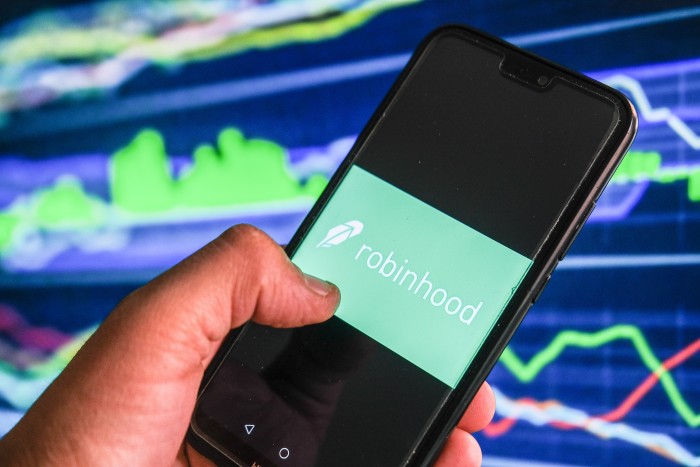The apps making business more social

In the early 2000s, social media networks helped to transform the very idea of community. Building off the forums and bulletin boards of the early internet, companies such as Facebook (now Meta) and Twitter sold a vision of a “social” web.
That promise has largely soured: from 2016 onwards, social media became almost synonymous with scandal. Platforms’ failures — on data privacy, misinformation, hate speech and more — have furnished business schools with examples of what not to do.
But the idea of social products remains powerful. For would-be entrepreneurs, finding a way to build community successfully could be the difference between an app becoming lost as one of many in the field, or a standout success.
The idea that a social function is vital to an app is not new. In 2020, investor D’Arcy Coolican wrote about the idea of “social+” — companies, such as TikTok or Fortnite, which focused on a single category and built a social experience around it.
“Any product that has a social component baked in has fundamental and asymmetric advantages over competing non-social products in that category: better growth loops, better engagement, better retention, better defensibility,” wrote Coolican. “And, because social+ companies are network- and community-driven, that advantage accumulates over time.”
One aspect highlighted by Coolican was the idea that the social feature is an integral part of the wider product, rather than an addendum. Simply tacking on the ability to share content with friends is not enough to make a product work.
One such app with an integrated social component is Shares, which targets the world of retail stock trading. Harjas Singh, co-founder and chief product officer, says the app aims to build off the success of others, such as Robinhood.

Those apps saw a huge surge of demand in the pandemic, driven by a stimulus-fuelled trading boom. But, while there was an explosion of communities based around stock trading, they occurred off the app. In the case of retail trading, Reddit — home to WallStreetBets — was one hub. Others included closed or private channels on messaging apps such as Telegram and Discord.
“Retail investing has traditionally been a lonely and single-player experience,” says Singh. “The current generation of retail investing apps have managed to build an efficient trading utility but have lacked a social experience.”
These apps created an unnecessary level of complexity, Singh argues, with limited guidance or support for users. “That introduces a barrier to entry for users who find the financial domain daunting,” he says.
The Shares app’s functionality resembles a social media platform as much as it does a retail trading app. Users can see what their friends have bought and sold — though the app does allow them to hide some stocks — encouraging discussion and social interaction.
But “social” should not be understood as limited to connecting contacts digitally. As Singh explains, Shares is also exploring how to build new networks through its experience with the app.
“We recently launched ‘Communities’ — a feature that allows users to engage in public discourse about investing and meet other like-minded investors to grow their network,” he says. These could range from beginner investors to those investing in Tesla or Apple and others focused on crypto or Web 3.0 (a decentralised future model of the internet based on blockchains).
Loop, a fintech launched last year, is also based around the idea of seamlessly integrating social aspects with another business. It gives users the facility to borrow or lend money to friends for free, enabling them to track what has usually been informal lending.
“The emphasis is on customers’ social groups and interactions,” says Paul Pester, Loop’s founder and executive chair. “Financial services don’t typically think that way, they think about accounts and transactions.”
One-third of people regularly borrow money from family and friends, says Pester, with about £12bn outstanding. Loop’s design, which mirrors elements of chat apps such as WhatsApp, focuses on digitising a common social experience.
In contrast to the model of traditional social media, which has been criticised for the way it can be used for advertising or political purposes, these newer products make money in other ways.
Loop, for example, monetises its “badge” system, which measures how promptly people repay loans. This effectively acts as a credit score, allowing users to get better deals. “We’re also looking at offering a Loop Kitty, enabling lending to groups of friends,” adds Pester.
For business students, the lesson from these apps is that, while social media companies may be facing tough times, there is a stronger pathway than ever for businesses that can find a way to embed social ideals and community in their wider product.
“‘Social’ is a universal and timeless need,” Coolican wrote. “At our core, humans are social beings. We crave connection and community — beyond social media — and things start to fall apart when we don’t have it.”
Comments